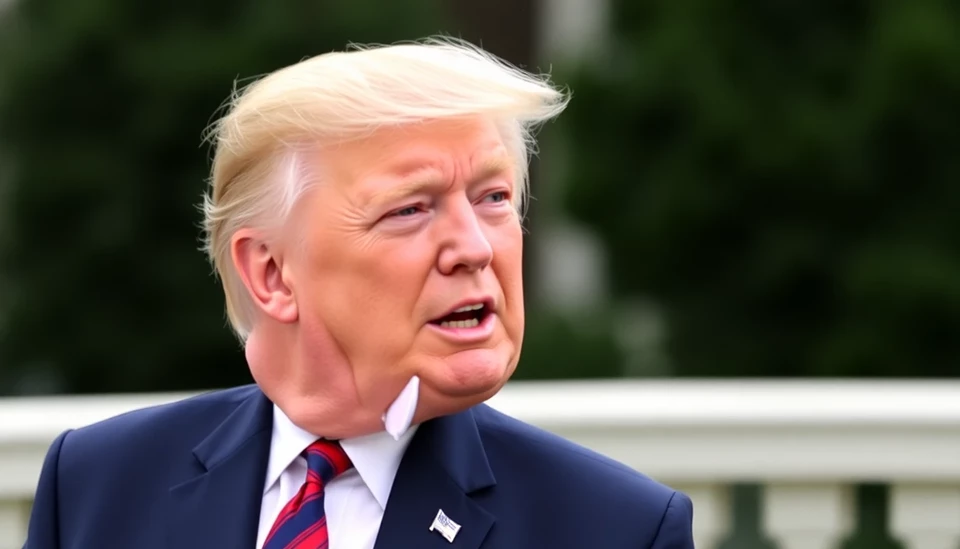
In a significant statement that has implications for both financial markets and the broader economy, former President Donald Trump announced that he has no intention of terminating Federal Reserve Chair Jerome Powell from his position. This declaration came during a recent gathering, where Trump was explicitly asked about his plans regarding Powell, especially in light of ongoing discussions about the Fed's monetary policy.
Trump's remarks signal a pivotal moment for investors and analysts who have been closely monitoring the interactions between the White House and the Federal Reserve, particularly as the U.S. navigates complex economic conditions marked by inflationary pressures and interest rate adjustments. The former president's approach to the central bank has historically been characterized by a distinct skepticism; however, his current stance of retaining Powell suggests a recognition of the importance of stability within the Fed during these turbulent times.
During his presidency, Trump famously expressed dissatisfaction with Powell's decisions, particularly when interest rates were raised. He often expressed his belief that lower rates would spur economic growth. Despite these past grievances, his recent comments reflect a changing perspective, perhaps influenced by the critical roles that various economic indicators play in shaping public and investor confidence.
Markets reacted cautiously to Trump's announcement, as traders and investors absorb the implications of his support for Powell in light of the Fed's strategies to combat inflation. Powell has led the Fed through a series of interest rate hikes aimed at curbing rising prices, a move that has generated both support and criticism across the political spectrum.
Trump emphasized the need for a cooperative relationship between the White House and the Fed, indicating that long-term economic strategies succeed best when there is alignment among policymakers and financial regulators. His avowal of confidence in Powell could reassure those wary of potential leadership changes at the Fed, particularly with ongoing debates about the future direction of U.S. monetary policy.
As the economy continues to face challenges, including supply chain disruptions and labor market variances, Trump's stance is likely to resonate within both political and financial domains. Stakeholders will be keenly watching how the Fed navigates upcoming policy decisions and whether Trump's support will play a role in maintaining continuity in leadership as economic dynamics evolve.
This latest development underscores the complex interplay between political leadership and economic policymaking in the United States, particularly as the nation prepares for future challenges and opportunities in a rapidly changing global landscape.
In conclusion, Trump's reaffirmation of support for Jerome Powell conveys a significant message about the need for stability and effective governance in economic matters, reinforcing the importance of a steadfast leadership approach as the economy grapples with both contemporary issues and prospective growth pathways.
#Trump #JeromePowell #FederalReserve #Economy #InterestRates #MonetaryPolicy #Finance #EconomicStability #Inflation
Author: Rachel Greene




